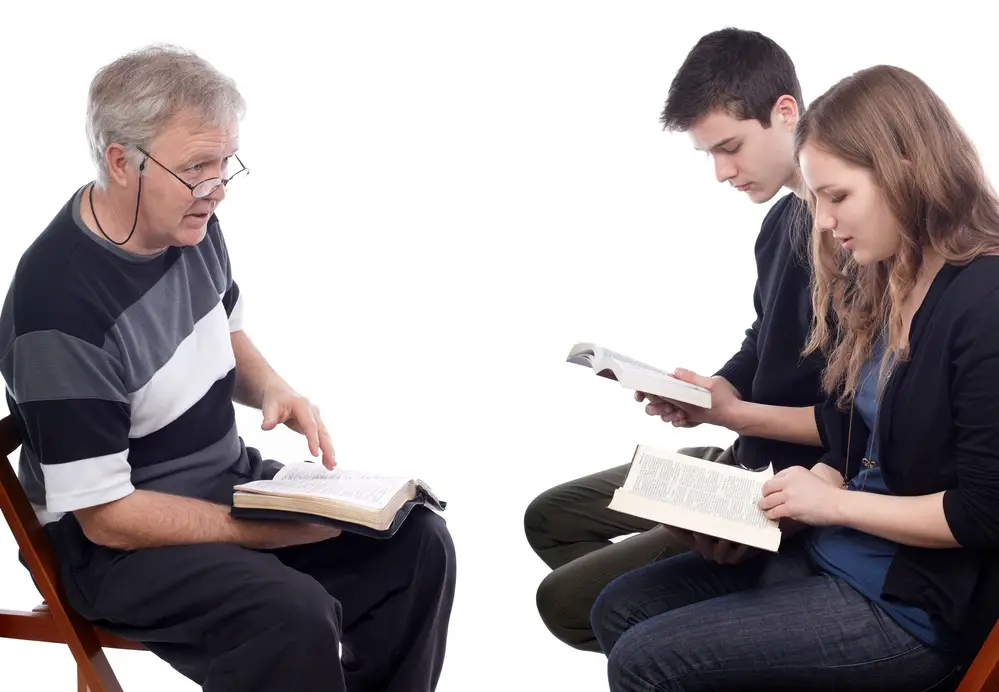As a BetterHelp affiliate, we receive compensation from BetterHelp if you purchase products or services through the links provided
Communion meditation is a practice that allows believers to focus their thoughts and hearts on the significance of the Lord’s Supper. As Christians gather around the table to partake in the bread and wine, they remember the sacrificial love and grace offered by Jesus Christ. By engaging in guided reflections and prayers during this sacred time, participants can deepen their understanding of this act of worship and strengthen their connection with God.
The art of communion meditation helps foster spiritual growth and encourages a sense of unity among the congregation. This practice supports participants in establishing a contemplative atmosphere, allowing them to enter a more profound appreciation of Christ’s life, death, and resurrection. This contemplative state enables participants to dive deeper into communion’s biblical meaning while facilitating a heartfelt and genuine expression of gratitude for the ultimate sacrifice made on their behalf.
Key Takeaways
- Communion meditation promotes spiritual growth and unity among believers.
- Practicing guided reflections during the Lord’s Supper strengthens one’s connection with God.
- A deepened understanding of the biblical meaning of communion is achievable through contemplative states encouraged by meditation.

The Importance of Communion
Communion meditation, also known as the Lord’s Supper or the Eucharist, is a significant part of Christian worship services. As a believer, communion is essential to enriching your spiritual life and deepening your relationship with Jesus Christ. Here are some key reasons why this sacred ceremony holds great importance:
Symbolism: Communion represents the last meal Jesus shared with his disciples before his crucifixion. The bread and wine you partake in symbolize Christ’s body and blood, respectively, reminding you of the sacrifice Jesus made on the cross. This connection helps you to develop a more profound understanding of Jesus’ love and his role in your spiritual journey.
Unity: One of the vital aspects of communion is the sense of unity it creates among believers. As you participate in the Lord’s Supper, you join countless others worldwide in acknowledging Jesus as your Savior. This shared experience fosters a strong bond among Christians, strengthening the global church community.
A Reminder of Your Salvation: Engaging in communion is a time for reflection on your relationship with Jesus and the salvation he offers through his death and resurrection. Contemplating the significance of Christ’s sacrifice encourages you to live out your faith genuinely and walk more closely with him daily.
Spiritual Growth: Regularly participating in communion can significantly impact your spiritual growth. As you focus on Jesus and his teachings during a worship service, you’re more likely to develop your understanding of the Bible and apply Christ’s principles. The practice of communion meditation can help you both deepen and maintain this focus.
Remember, communion is not just a ritual; it’s an essential aspect of your relationship with Jesus Christ. By fully understanding its importance and participating in communion, you can enhance your spiritual life and cultivate a stronger connection with Christ.

Scriptural Significance
Sin and Forgiveness
In the Bible, sin is often depicted as a spiritual burden that separates us from God. When we confess our sins and ask for forgiveness, we acknowledge our human frailties and seek the healing grace of God. Communion meditation allows you to reflect on these concepts of sin and forgiveness.
During this time, you can ponder the biblical passages that speak to the human condition, such as Romans 3:23: “For all have sinned and fall short of the glory of God.” Recognize your need for forgiveness and the importance of seeking a restored relationship with God.
Also, consider the role of forgiveness in the life of Jesus, as shown in Luke 23:34, when He said, “Father, forgive them, for they do not know what they are doing.” Through communion, remember the grace and mercy that God extends to us despite our sins and imperfections.
Jesus and the Cross
The cross is a central Christian symbol, representing Jesus’ ultimate sacrifice for humanity. Communion prepares your heart to focus on the Gospel message, reminding you of Christ’s death and resurrection and the significance of these events in your spiritual journey.
During communion meditation, you can reflect on the following biblical passages related to Jesus and the cross:
- Matthew 26:28: “This is my blood of the covenant, which is poured out for many for the forgiveness of sins.”
- John 19:30: “When he had received the drink, Jesus said, ‘It is finished.’ With that, he bowed his head and gave up his spirit.”
- 1 Corinthians 11:26: “For as often as you eat this bread and drink the cup, you proclaim the Lord’s death until he comes.”
Meditating on these Scriptures reminds you of Jesus’s vital role in your spiritual life and the eternal significance of His sacrificial act on the cross. Embrace the transformative power of the Gospel message as you participate in the communion ritual.
 Seek faith-based healing today.
Seek faith-based healing today.
Exploring Communion Meditations
The Message
Communion meditations allow you to deepen your understanding and experience of the Lord’s Supper. As you explore these meditations, consider the message they convey. In many cases, the message focuses on the sacrifice of Jesus and our response to his love and grace.
- Reflect on your relationship with Jesus and how his sacrifice impacts your life.
- Consider ways you can deepen your connection and live out your faith.
Reflections and Examples
Becoming familiar with diverse communion meditations can provide a richer and more varied experience during the Lord’s Supper. Here are some suggestions to explore:
- Check out Becoming Closer’s Communion Meditations, which offer a wide range of reflections, available in PDF and paper copy.
- Browse the Christian Standard archives for thought-provoking communion meditations dating back to 2021.
- Download and read through the volumes Becoming Closer provided, organized by year and available in PDF format.
As you read through these examples, please take note of the emotions, insights, and spiritual growth they evoke.
Musical Interlude
Incorporating music into your communion meditation can create a more immersive and emotionally powerful experience. Consider listening to songs that focus on Jesus’ sacrifice, forgiveness, and love.
- Create a playlist of hymns and worship songs that resonate with you and enhance your communion meditation experience.
- Explore various genres and styles of music to find what best helps you connect with the underlying message of the Lord’s Supper.
- Try listening to instrumental music or songs with lyrics related to communion, allowing the melodies to speak to your heart as you reflect on Jesus’ sacrifice.
Embrace the opportunities to deepen your faith and understanding presented by communion meditations. Engage with the message they provide, explore reflections and examples to expand your experience, and consider incorporating music to create a powerful, spiritual atmosphere.
Personal Participation
Preparation and Prayer
Before participating in communion meditation, you must prepare your heart and mind. This can be done through prayer, allowing you to focus on the significance of the act and your relationship with God.
- Begin by setting aside a quiet space for reflection and prayer. Remove distractions around you to create a conducive environment for deep thought and contemplation.
- Spend a few moments just pausing and quieting your inner thoughts before you start to pray. This will help you enter a centered and receptive state.
- Approach God in prayer with a humble heart, asking for guidance and wisdom during your communion meditation. Express your gratitude for the sacrifice of Jesus Christ, and ask for the Holy Spirit to help you grow closer to God through this sacred experience.
Partaking Alone
You may sometimes participate in communion meditation alone rather than with fellow believers. In these cases, it’s essential to maintain a strong connection with God and remain intentional about the purpose of your meditation.
- Remember that communion meditation focuses on deepening your relationship with God by reflecting on the significance of Jesus’ sacrifice and experiencing the presence of the Holy Spirit in your life.
- Set up a small table or altar with communion elements (bread and wine or juice) to help you concentrate and establish a sacred space for your meditation.
- As you partake in the bread and wine, pause to remind yourself of the significance of these elements: the broken body and shed blood of Jesus Christ, symbolizing his sacrificial love for you.
- Use this time to pray privately, lifting your concerns, joys, and requests to God. This can be a valuable opportunity for more profound personal prayer and reflection on God’s grace and love.
Remember to embrace the personal nature of communion meditation, whether you’re participating alone or with a group. By engaging in this act of worship with intentionality and focus, you can strengthen your connection with God and grow in your faith journey.

Symbols in Communion
Bread and Juice
In communion, bread represents the body of Christ, which was broken for us. It serves as a reminder of the sacrifice Jesus made on our behalf. When partaking in communion, you are reminded of Jesus’ provision and sustenance in your spiritual journey. Similarly, juice symbolizes the blood of Jesus and the new covenant established between God and humanity. As you drink the juice, you’re reminded of the forgiveness and salvation available to you through Jesus’ sacrifice.
- Key takeaway: Bread and juice are potent symbols of Jesus’ body and blood, reminding us of His sacrifice and the provisions He offers.
Leaves, Vines, and Ropes
In addition to bread and juice, communion can include other signs and symbols that enrich the meaning of this practice. For instance, leaves and vines can symbolize believers’ interconnectedness and reliance upon Christ as the source of life and growth. Jesus famously said, “I am the vine; you are the branches” (John 15:5). Incorporating leaves and vines into a communion meditation highlights believers’ unity in Christ.
Ropes might signify the bond between Christians and their need for one another. They can also represent the cords that bound Jesus before His crucifixion, reminding us of His suffering and the cost of our redemption. Utilizing ropes in a communion meditation symbolizes the strength Jesus provides and the interconnectedness of the body of Christ.
- Key takeaway: Leaves, vines, and ropes symbolize the unity and strength believers share in Christ.
Remember that, as a participant in communion, it is essential to contemplate the deeper meanings and symbols connected with bread, juice, leaves, vines, and ropes. By doing so, you can fully appreciate the significance of this sacred practice and grow in your relationship with Jesus.
Relieving Burden Through Communion
During Communion, you can find relief from your burdens by focusing on the powerful symbolism and message of hope it conveys. In this spiritual practice, you’re reminded of the forgiveness, strength, and love provided by Jesus’ sacrifice. Let’s explore how Communion can help you alleviate some heavy burdens.
First, recognize that partaking in Communion represents receiving the gift of forgiveness. Your sins are forgiven through Jesus’ sacrifice on the cross, and you’re provided with a clean slate. As you participate in the Lord’s Supper, embrace this forgiveness. Let go of any guilt or shame weighing on your heart, and find freedom in this act of grace.
In addition to forgiveness, Communion allows you to feel a sense of belonging and community. As you break bread with fellow believers, you share in the collective strength of your faith. During this moment, remember that you’re never alone in carrying your burdens, and a supportive community of believers constantly surrounds you.
Another way Communion relieves burdens is by reminding you of Jesus’ resilience and strength. As you meditate on the symbolism of his body and blood, consider the hardships he faced and the ultimate victory he achieved over death. Let this inspire you to remain strong even when facing life’s challenges and break any chains holding you back.
When partaking in Communion, it’s also essential to focus on the theme of giving. Reflect on how Jesus gave himself entirely for the well-being and salvation of humanity. You can ease your burdens by practicing giving in your everyday life, whether through acts of kindness, generosity, or service. Giving helps you shift your perspective away from your struggles and recognize the shared experience of human fragility.
Finally, Communion provides you with a profound sense of hope. It reminds us of Jesus’ resurrection and the eternal life promised to those who believe in him. By connecting with this hope, you can find the strength to persevere through your burdens and face life with renewed optimism and purpose.
In summary, Communion is a powerful way to relieve your burdens by connecting you with forgiveness, community, strength, giving, and hope. Through this sacred practice, you will find solace and sustenance to handle life’s challenges with grace and renewed purpose.
Find Comfort and Healing in Faith
Reflections
As you reflect on communion meditation, remember it is a powerful reminder of Christ’s sacrifice and love. Embrace the glory of communion in its simplicity, as it unites believers in a shared act of worship. Here are a few points to ponder:
- Find solace in the knowledge that communion brings healing to your aches and pains, both spiritually and emotionally.
- Don’t lose sight of Jesus’ sacrifice for everyone, including the innocents who suffer.
- Stay grounded in your spiritual journey by consistently participating in communion and meditation.
Finally, to enrich your experience further, consider utilizing helpful resources, such as a PDF download of communion meditation materials. These guides can provide additional insights and inspiration, enhancing your relationship with God and fellow believers.
Remember, as you continue to partake in communion and immerse yourself in meditation, your faith can be renewed, your bond with fellow believers strengthened, and your commitment to walk with Christ deepened.

Nurturing Faith: Deepening Connection with Jesus Through Communion Meditation and Christian Counseling
It’s a beautiful journey, walking hand in hand with faith, yet there may come a time when the path seems a bit rocky. During such moments, one might seek additional guidance to strengthen the connection with Jesus and navigate life’s challenges. Here’s how to identify those signs and seek the right kind of support:
? Craving a Deeper Connection
- Feeling a spiritual dryness despite regular prayer and worship.
- Seeking a more profound understanding and experience of Jesus’s love and teachings.
- Desiring to feel God’s presence more strongly in daily life.
? Expressing and Understanding Emotions
- Struggling to find peace or forgiveness in certain life situations.
- Feeling overwhelmed by life’s challenges and unsure how to find spiritual solace.
? Community and Relationships
- Experiencing difficulty in relating to others in your church community.
- Desiring to build relationships grounded in faith and mutual spiritual growth.
? When Professional Guidance is a Beacon of Light
Recognizing any of the above signs might be an invitation to seek professional guidance. Christian counseling can be a beautiful way to merge faith with personal growth and healing.
Goals of Christian Counseling:
- Faith Integration: Incorporating faith into the healing journey, allowing Christ’s teachings to guide the process.
- Emotional Healing: Addressing emotional wounds with therapeutic and spiritual resources.
- Improved Relationships: Cultivating healthier relationships with self, others, and God.
- Spiritual Growth: Deepening the understanding and practice of faith in daily life.
Signs of Progress:
- ? Blossoming Faith: Feeling a renewed or deepened connection with Jesus.
- ? Emotional Resilience: Developing a more robust emotional core, finding peace amidst life’s storms.
- ? Improved Interpersonal Relationships: Experiencing more fulfilling relationships grounded in mutual respect and understanding.
- ? Deeper Spiritual Understanding: Gaining new insights into God’s word and experiencing a more profound spiritual fulfillment.
Engaging in Christian counseling can be a significant step towards embracing a life filled with faith, hope, and love. The fusion of professional help and spiritual guidance can catalyze profound personal and spiritual growth, bringing one closer to God and the essence of Christ’s teachings. Through this journey, every step taken is a step closer to a heart brimming with love, peace, and understanding under the gentle gaze of the divine.
Frequently Asked Questions

What are some meaningful themes for a communion meditation?
Some meaningful themes for a communion meditation include the sacrifice of Jesus, the significance of the Last Supper, and the connection between Jesus’ crucifixion and resurrection. You may also want to explore themes such as forgiveness, new beginnings, spiritual growth, and unity among believers.
How can humor be incorporated into communion meditations?
Humor can be incorporated into communion meditations by sharing relatable anecdotes or experiences highlighting a deeper meaning. Be cautious with humor, as not everyone has the same sense of humor, and you don’t want to detract from the sacred nature of communion. Use humor sparingly and appropriately to enrich the message and keep the focus on the central meaning of communion.
Where can I find PDF resources for communion meditations?
You can find PDF resources for communion meditations through various sources online, such as Christian websites, blogs, or church resource centers providing downloadable materials. Another option is to search databases of Christian publishers, as many of them offer digital resources, including PDFs, for communion meditations.
How can hope be a central message in communion meditation?
Hope can be a central message in communion meditation by focusing on the promises associated with Christ’s sacrifice and resurrection. Emphasize the hope of eternal life, the reunion with loved ones who have passed, and the restoration of our relationship with God. Share biblical references that illustrate our hope in Jesus, such as the empty tomb or Christ’s return.
What makes a good short communion meditation for the Christian church?
An excellent short communion meditation for the Christian church should:
- Reflect on the deeper meaning of communion, such as Christ’s sacrifice, unity, or forgiveness.
- Be concise and to the point, without irrelevant content or lengthy explanations.
- Include biblical references and illustrations to connect the message with Scripture.
- Be emotionally engaging, drawing believers deeper into their relationship with Jesus.
How can love be reflected in a communion meditation?
Love can be reflected in a communion meditation by focusing on the love of God displayed through Christ’s sacrifice on the cross and the promise of eternal life. Share how love is at the heart of communion, as it symbolizes the love between Jesus and believers and the love that binds the church together as a community. Encourage attendees to reflect on God’s love and express gratitude for the grace and mercy shown to them.
About Jacob Maslow
After surviving the traumatizing events of 9/11, I took it upon myself to heal through helping others. I’m the primary caregiver of my children and understand from first-hand experience the lonely paths you have to walk as a partner and parent when leaving an unhealthy relationship.
We’re all echoing in a dark space that doesn’t have to be this empty, and that’s been my mission since finding solace and recovery in therapy: To help comfort others who are still in shock and at the prime of their struggle.
I came across BetterHelp after searching for this type of community. I wanted to belong to a body of proactive therapists and supportive therapy veterans that allowed me to see other sides of the story.
It was unconventional, and that’s what attracted me most. During my most challenging times, when my ex-wife completely cut me off from my children, I found comfort and clarity through BetterHelp.
Instead of being chained to a strict therapist recommendation, I was in charge of who I felt understood my struggle most. That allowed me to find my true peace, as I was reunited with those who read behind my words and had first-hand experience with my trauma.
Recovery is a choice; with BetterHelp, that choice will be a few clicks away. You can join their couples-oriented platform, Regain.us, for those stuck with family estrangement and toxic relationship patterns.
This site contains affiliate links to products. We will receive a commission for purchases made through these links.




